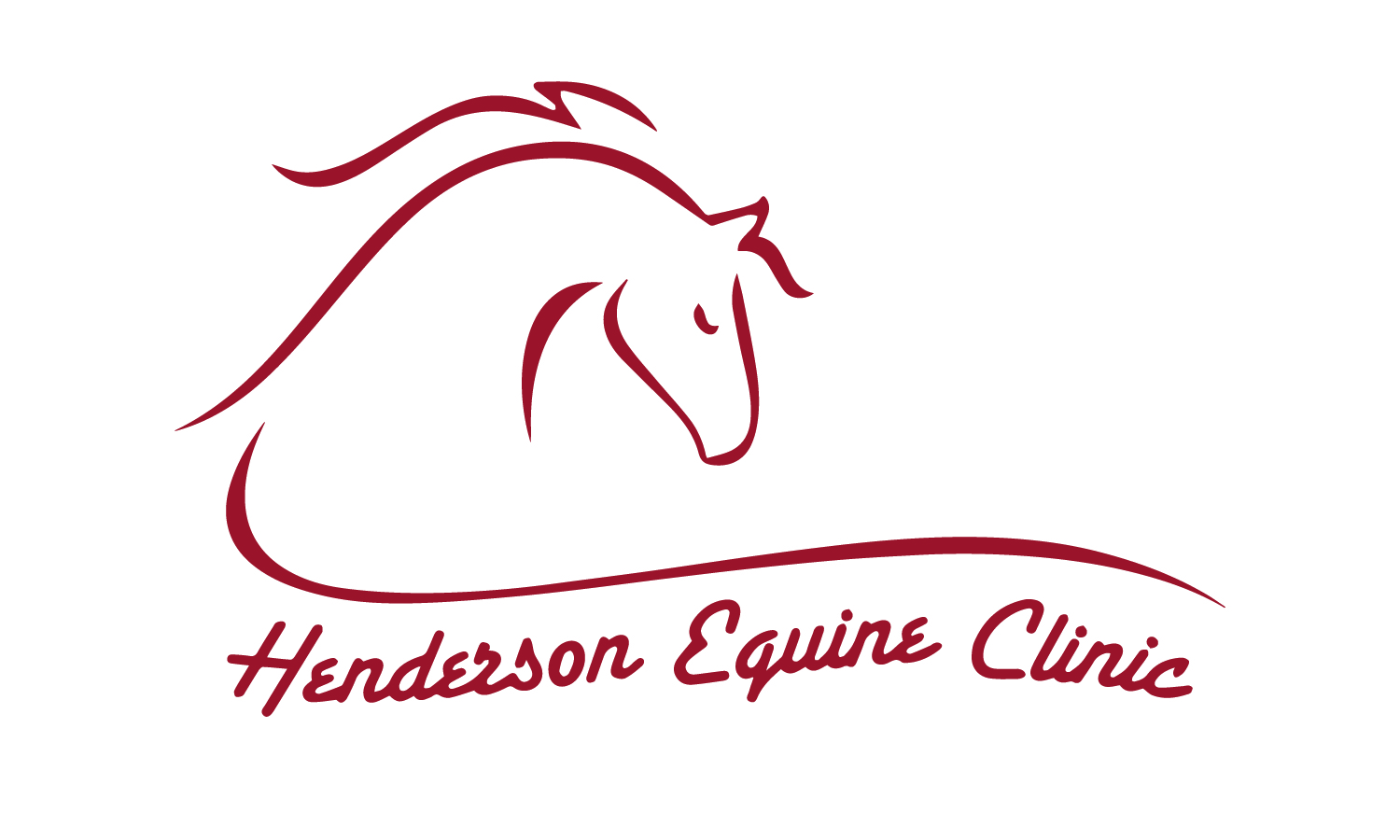Dental Care at Henderson Equine
Complete equine health care requires routine dental care. Early and regular examination of your horse's mouth will decrease the chances of broken teeth (which often require extractions), pain, weight loss, and oral ulcers. Dentistry also concerns associated structures within the head, such as the sinuses.
Beyond the comfort and good health of your horse, there are other benefits to proper dental care. Your horse will consume feed more efficiently with less spillage or waste and may perform better and live longer.
At Henderson Equine, we can provide motorized dentistry at your farm or at the clinic. Motorized dentistry is faster and often more thorough than traditional "hand floats". We do sedate the horses for this procedure, which helps to alleviate anxiety (in horses, vets and owners!). The sedatives are tolerated well and are very safe.
Equine Dental Wear
Horses have hypsodont teeth, which erupt continually throughout their lives. These teeth are naturally worn down by the normal circular chewing pattern of horses. This motion, moving the jaw front to back and side to side with each chew, aids in the grinding of food and wears down the premolar and molar teeth. However, the lower jaw is more narrow than the upper jaw, so the enamel on the outside of the upper teeth and the inside of the lower teeth do not wear down as much as the rest of the tooth surfaces. This results in sharp “points”, which can pinch the cheeks or tongue and cause pain or even oral ulcers.
Additionally, if anything causes the horse’s jaw to move differently, or if teeth are missing or poorly aligned, the teeth will begin to wear abnormally. Routine dental floating allows us to grind down these sharp or abnormal surfaces just enough to maintain a healthy grinding surface so your horse can chew properly and comfortably. If left unattended, the resulting dental problems will worsen with each year of tooth eruption. After an extended period of neglect, the problems will require drastic and frequent correction to keep the horse healthy.
Other things that can go wrong in a horse's mouth include loose or fractured teeth, abnormal uneven wear such as "ramps" or "waves", or gaps between the teeth that pack feed material. All of these can be addressed during a routine dentistry appointment.
Warning Signs of Dental Issues
Common signs of dental problems under saddle are resisting or refusing to take the bit, head shaking, high head carriage, resisting collection, or bucking under tack. Horses with dental problems may also spill grain, salivate excessively, twist their head to one side, or drop half chewed wads of hay ("Quidding") while eating. Often the last sign to appear is losing weight. While the incisors may be checked for abnormalities by raising the upper lips, the molars extend too far back in the mouth to be adequately checked without a speculum.
While many horses with dental problems show obvious signs, such as those listed above, some horses are more stoic and adapt to their discomfort. For this reason, routine dental care is recommended for all horses.
Recommendations for scheduling dentistry
A yearly dental examination is generally recommended for healthy adult horses. Younger horses (between the ages of 2-5), should be examined at least every six months because their dentition changes so rapidly as they develop. Geriatric horses (over the age of 20) or horses with a history of dental problems often benefit from a twice yearly schedule as well.
Owners often schedule their horse’s routine dentistry appointments to coincide with their spring/fall vaccinations and wellness exams.
The Dental Speculum
View of Equine Dental arcade (molars) made possible using a full mouth speculum
Although the dental speculum brings to mind images of middle age iron maidens, it is not uncomfortable for the horse and many will tolerate it very well, especially with the help of light sedation. The speculum is required to allow access to the back molars. Floating molars without a full mouth speculum ensures the back molars are not being filed and prevents a feel of the molars to prove the float is complete.
Remember, this access is provided by holding the horses jaw open and placing stress on the temporal mandibular joint. In addition, the upward head position artificially maintained during floating stresses the poll, occiput-atlas-axis joints. A chiropractic adjustment should be planned for a few days after the dental.
Can I get someone other than a veterinarian to perform my horse’s dental work?
While there are non-veterinarian “equine dentists” that advertise services in the area, a veterinarian is licensed to provide services that these layperson dentists cannot legally provide. As veterinarians, we are uniquely licensed to practice equine dentistry, to diagnose and treat dental disease, as well as to provide and administer sedation in order to achieve the most thorough exam. We are able to refer cases that are particular severe or complicated to top veterinary specialists.
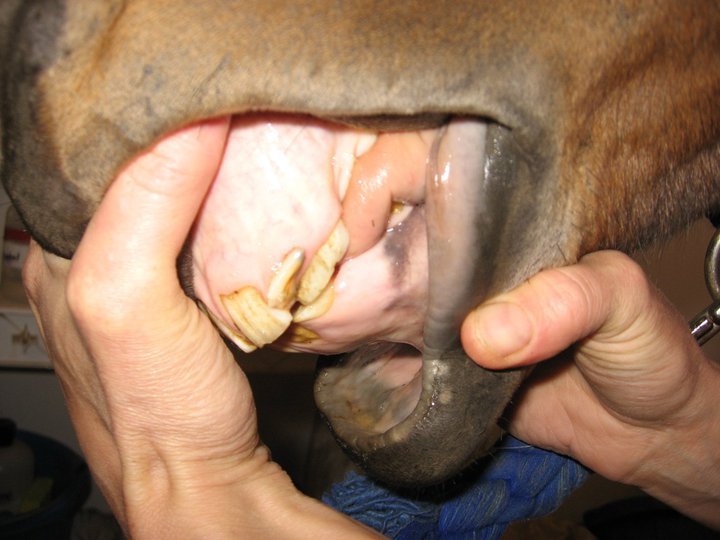
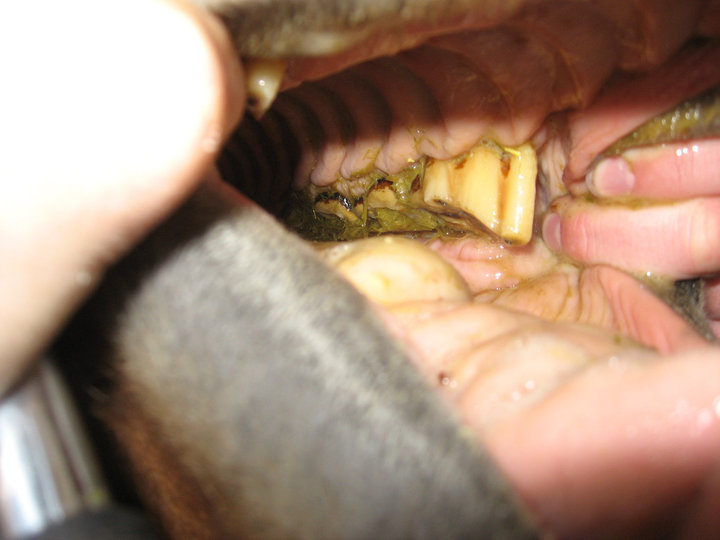
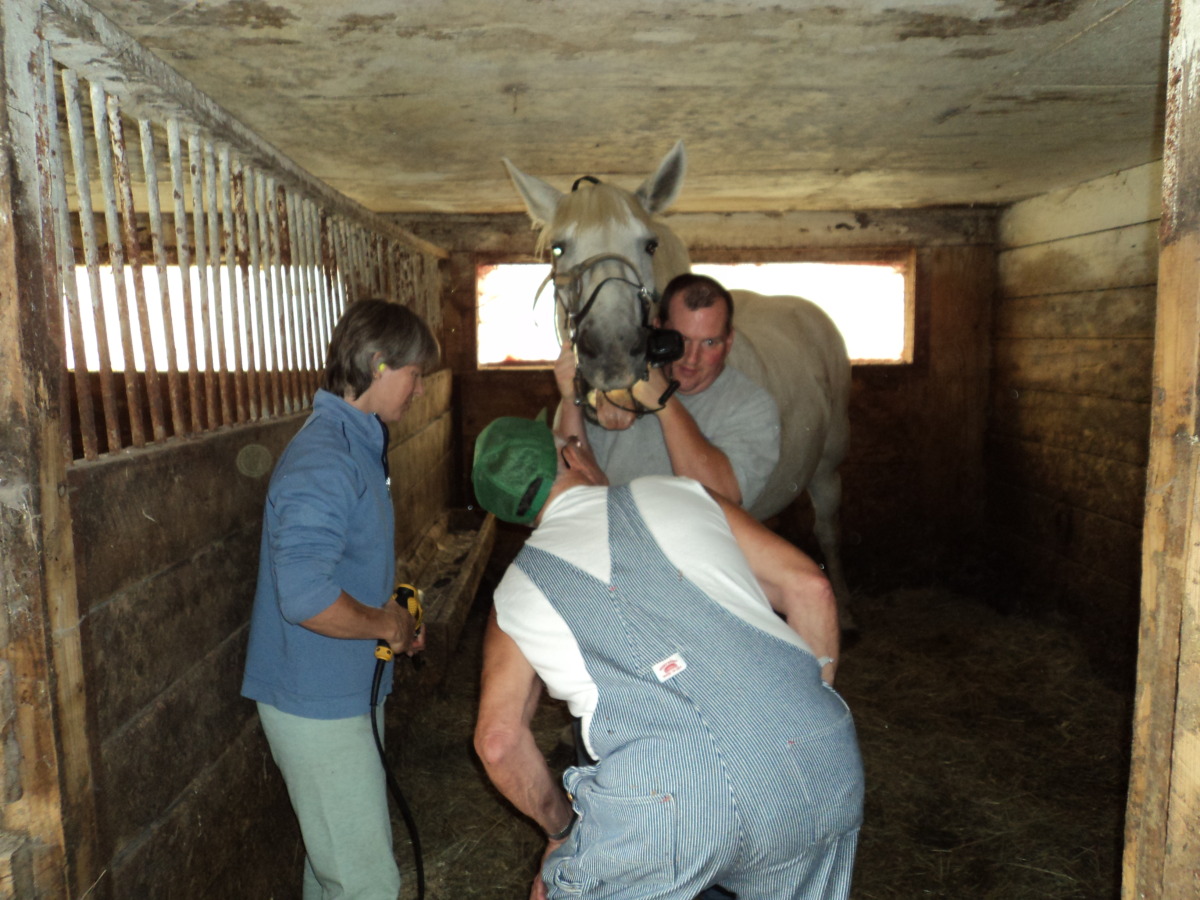
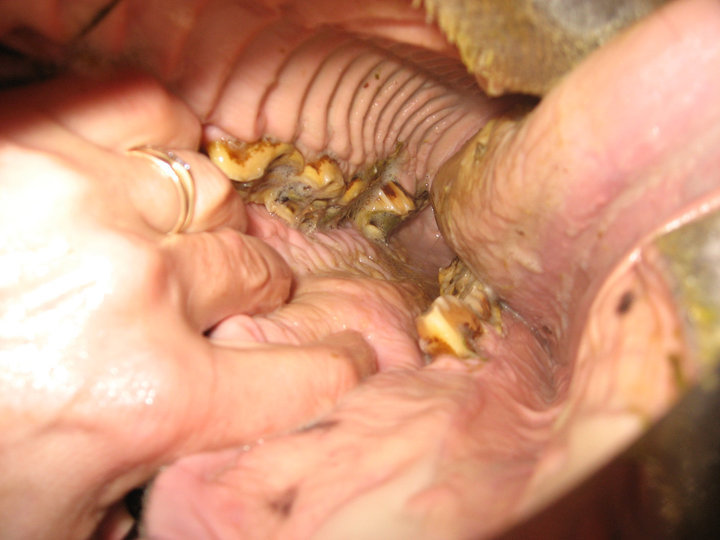
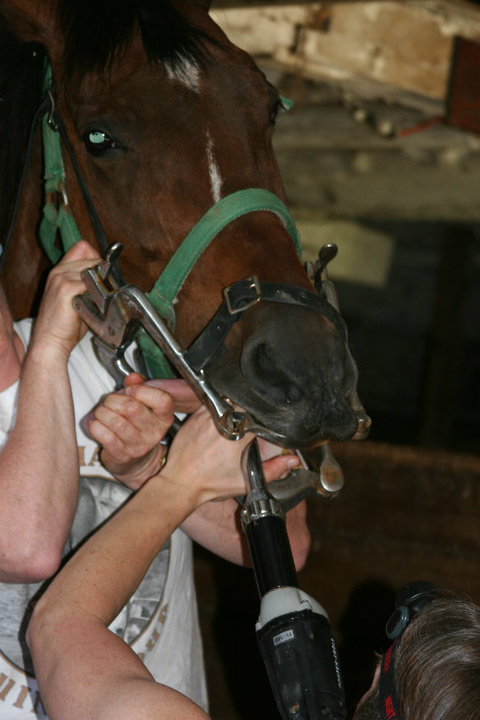
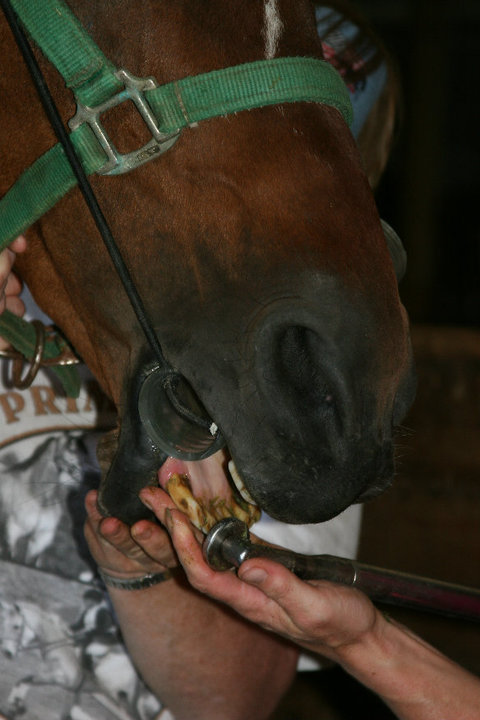
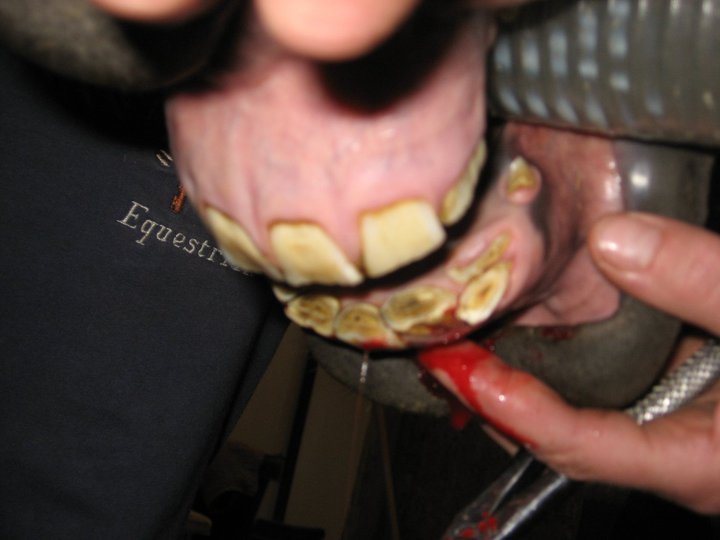
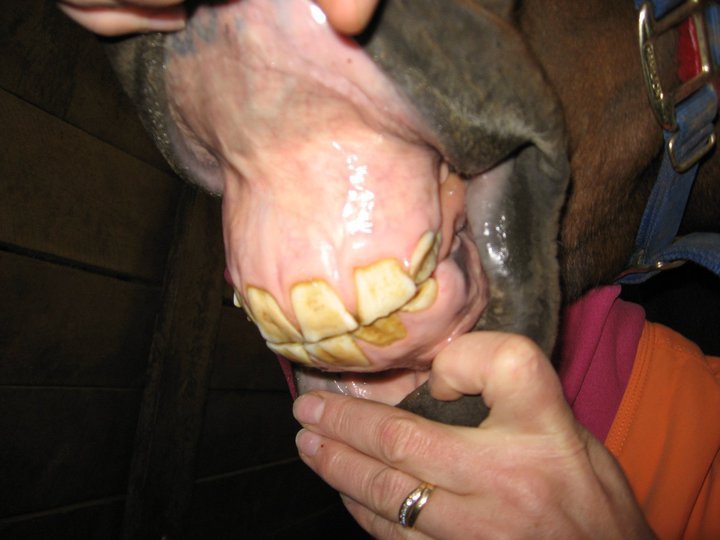
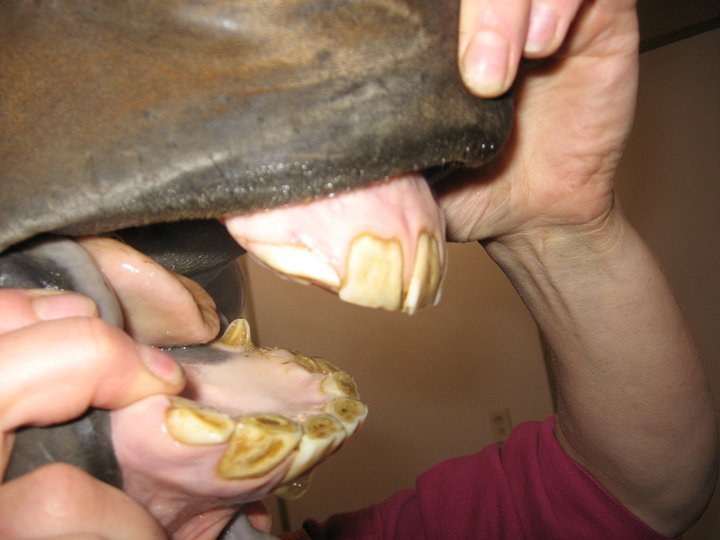
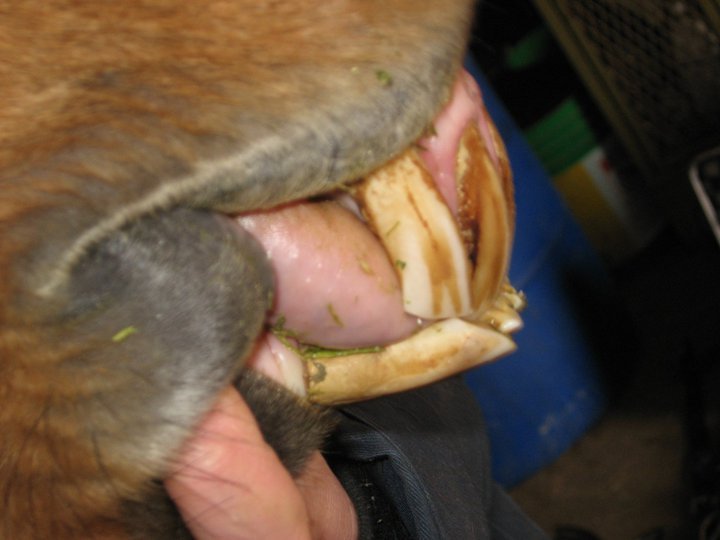
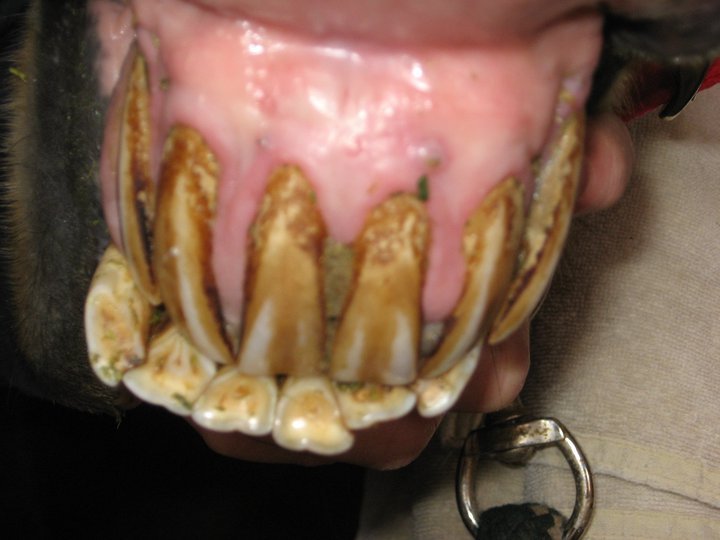
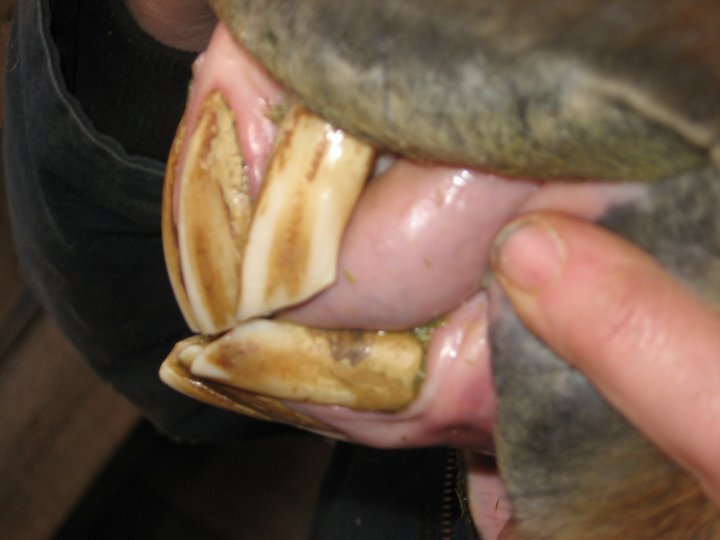

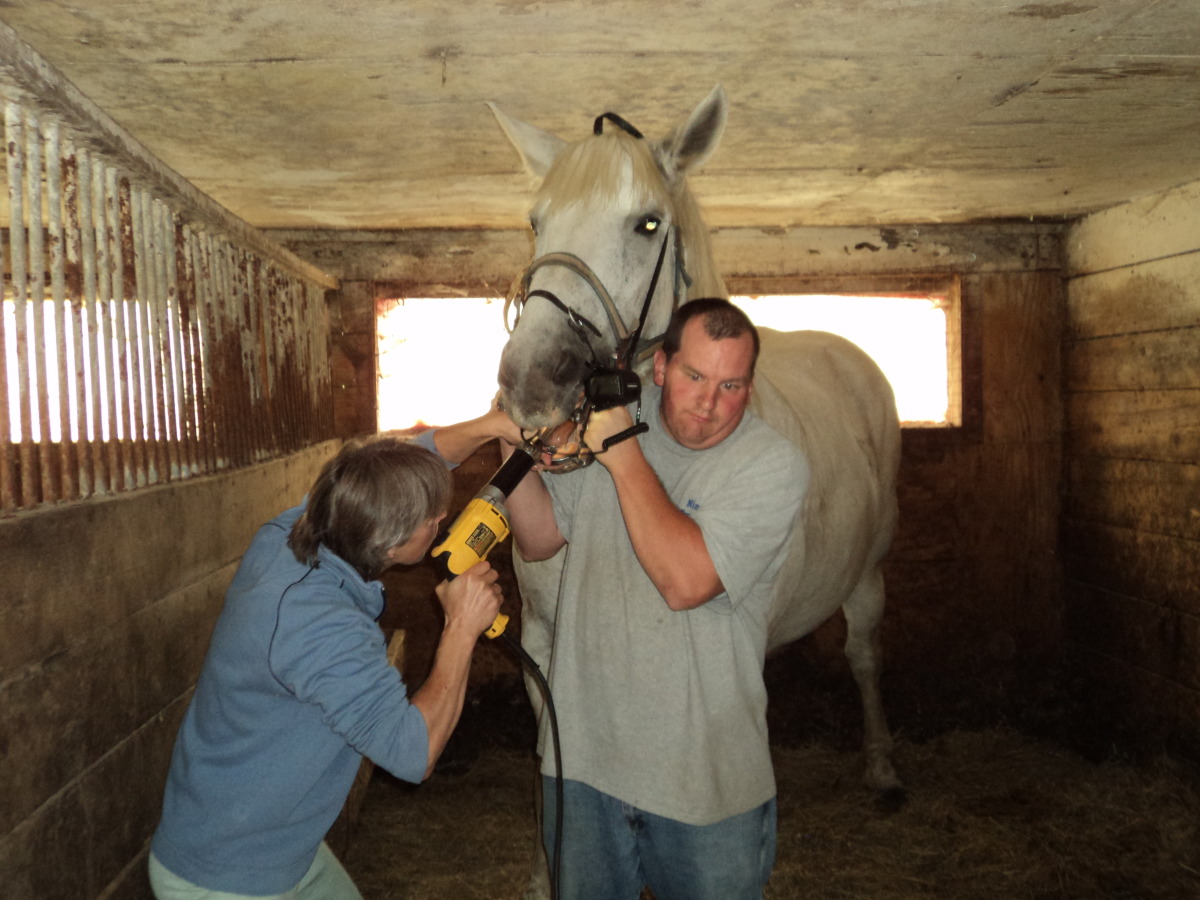
Sections reprinted with permission from the American Association of Equine Practitioners.
